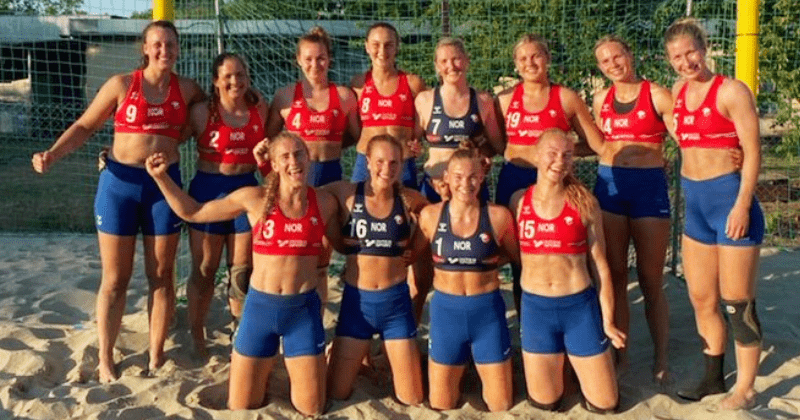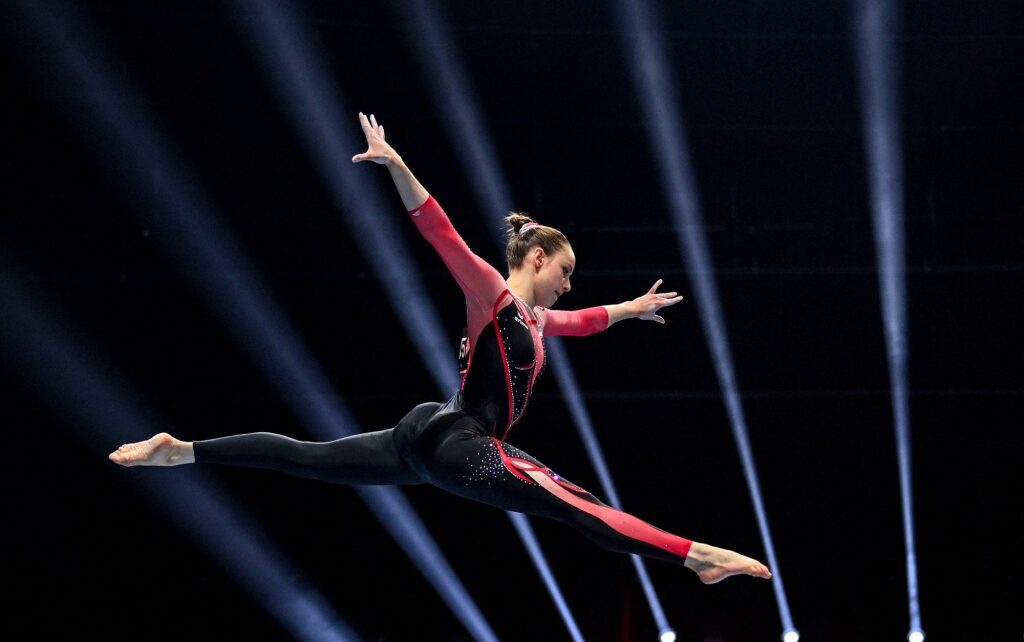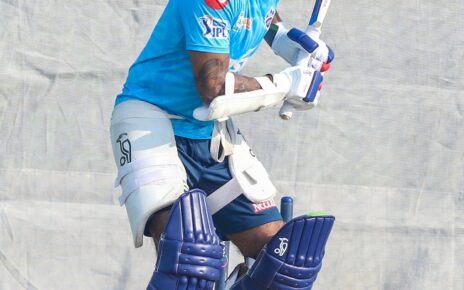The German women’s Olympic gymnastic team’s decision to wear full-length bodysuits, instead of traditional leotards, on Thursday during a Tokyo training session is raising questions about the sexism long associated with women’s sports and what they wear.
According to the BBC, the German Gymnastics Federation said in April, when the team debuted full-length bodysuits, that they were taking a stand against “sexualization in gymnastics.”
An Instagram post on July 22 from German gymnast Sarah Voss showed the athlete and her teammates posing in the pink and black bodysuits—with their legs covered and arms exposed—during their podium training session.

Voss said in April she hoped that other gymnasts who are “uncomfortable in the usual outfits will feel emboldened to follow our example.”
“We women all want to feel good in our skin,” she said. “In the sport of gymnastics it gets harder and harder as you grow out of your child’s body. As a little girl I didn’t see the tight gym outfits as such a big deal. But when puberty began, when my period came, I began feeling increasingly uncomfortable.”
“We wanted to show that every woman, everybody, should decide what to wear,” said team member Elisabeth Seitz, who also competed in the London and Rio Olympics.
While wearing full-length bodysuits is not against official rules, it is not common practice. The German team will decide whether to wear the full-length unitard in competition on Sunday.
The posting of the image on Instagram comes just days after Norway’s women’s beach handball team was fined after the players refused to wear bikini bottoms in a match. The Disciplinary Committee of the European Handball Federation (EHF) fined the team 1,500 euros (£1,300), or 150 euros (£130) per player.
The fine came after the women’s team wore shorts – instead of the bikini bottoms required by International Handball Federation’s (IHF) rules – in their bronze-medal match loss to Spain at the European Beach Handball Championship in Bulgaria on Sunday. The Norwegians lost that game — but they also said they were proud to make a statement by playing in shorts instead of bikini bottoms.

Norwegian officials reacted angrily to the news the following day. “It’s completely ridiculous,” Norway’s Minister for Culture and Sports, Abid Raja, tweeted after Monday’s ruling. “What a change of attitude is needed in the macho and conservative international world of sport.”
The team had petitioned to wear the shorts its players train in from the start of the tournament, said Norwegian Handball Federation President Kåre Geir Lio, but was threatened by the EHA with a fine or disqualification.
Clothing has long been an issue in beach sports, with some women players finding bikinis degrading or impractical.
While bikinis have not been compulsory for beach volleyball players since 2012, IHF rules state ‘female athletes must wear bikini bottoms’ and that these must have ‘a close fit’, be ‘cut on an upward angle toward the top of the leg’ and a side depth of no more than 10 centimetres.
However, male players wear shorts.
Moreover, in 2016, the world of gymnastics – particularly in the United Sates – was rocked by sexual abuse accusations against senior figures, including longtime USA Gymnastics (USAG) national team doctor Larry Nassar.
Nassar was found guilty and later sentenced to 40 to 175 years in prison after more than 150 women made impact statements against him in court. The case led to questions being raised over the sport, namely how someone like Nasser had unsupervised access to young girls for so long.




